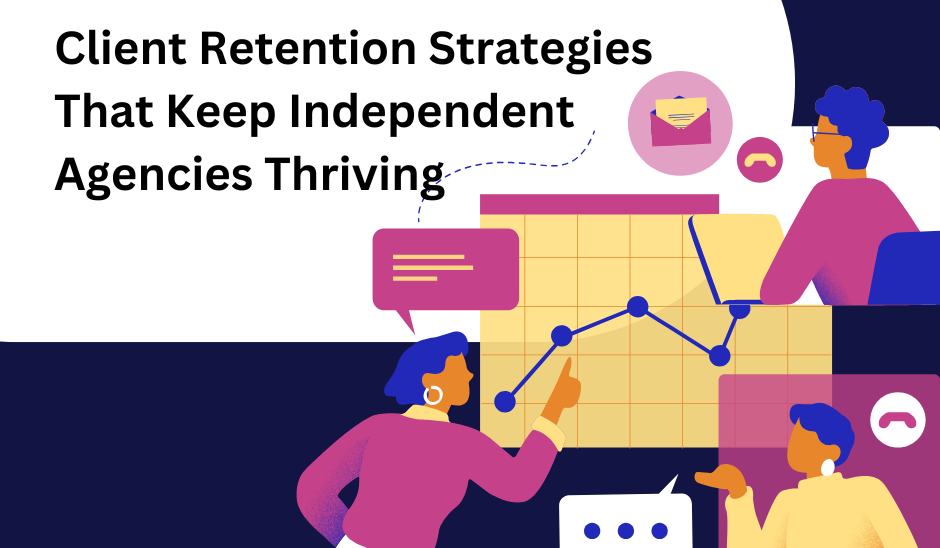Supporting Clients Through a Large Claim

What Independent Insurance Agents Should and Shouldn’t Do
When a large claim occurs, independent insurance agents are crucial in guiding their clients through what can be a stressful and confusing process. Providing the right support and avoiding missteps can make a huge difference in how smoothly the claim is handled and how satisfied the client feels afterward. Below is a guide outlining what to do and what not to do as an independent insurance agent during a large claim.
Proactive Communication Before a Claim Occurs
What to Do:
- Conduct regular coverage reviews to ensure the client’s policy is up-to-date with appropriate coverage for potential risks.
- Educate clients about their policies so they understand what’s covered and what exclusions exist.
- Prepare clients for the claims process by explaining potential scenarios and how their insurance will respond.
What Not to Do:
- Don’t wait for a claim to review coverage. Failing to check in regularly could leave clients underinsured.
- Avoid vague or unclear explanations. Make sure clients fully understand their coverage instead of assuming they do.
- Don’t assume clients know what to expect if a large claim happens. Many may not understand how involved the process can be.
Be the First Point of Contact
What to Do:
- Guide the client on immediate actions like securing their property, documenting damage, and minimizing further loss.
- Be available and responsive to reassure your client that they are in good hands.
- Initiate the claim quickly by filing it for the client or helping them navigate the claims process.
What Not to Do:
- Don’t leave the client to figure things out on their own. Lack of guidance can lead to missed steps or delayed claims.
- Avoid delays in communication. Waiting too long to respond can cause unnecessary stress for the client.
- Don’t assume the client knows how to file a claim—walk them through the process or handle it for them when possible.
Provide Emotional Support
What to Do:
- Offer empathy and understanding. Clients are likely experiencing stress and anxiety.
- Reassure clients that their policy is there to protect them and that you’ll guide them through the process.
What Not to Do:
- Don’t underestimate the emotional impact of a large claim. Clients need more than just technical help, they need reassurance.
- Avoid being too clinical or detached. Be personable, and let clients know you care about their well-being.
Explain Policy Coverages and Exclusions
What to Do:
- Clearly explain what is covered and excluded in their policy to avoid surprises.
- Help the client understand deductibles and out-of-pocket costs.
What Not to Do:
- Don’t gloss over policy details. Clients need to know exactly what’s covered, especially during a large claim.
- Avoid making assumptions. If something is unclear, consult the insurer or policy language before advising the client.
Help with Documentation
What to Do:
- Ensure the client documents the damage thoroughly by taking photos, videos, and keeping all receipts and repair estimates.
- Assist with preparing the claim packet by reviewing documents and making sure all necessary information is included.
What Not to Do:
- Don’t assume the insurance company will handle everything. Incomplete documentation can slow down the process.
Interact Between the Client and Adjusters
What to Do:
- Coordinate with adjusters to ensure the claim is being processed efficiently.
- Set expectations on timelines and keep the client informed about next steps.
What Not to Do:
- Don’t leave the client alone to deal with the adjuster. They may feel overwhelmed or uncertain about how to interact.
- Don’t make promises about timelines that are unrealistic or outside your control.
- Avoid being passive. Be an active advocate for your client’s best interests during interactions with the adjuster.
Coordinate with Third-Party Services
What to Do:
- Recommend trusted vendors for repairs, appraisals, or legal counsel.
- Assist with temporary solutions by recommending restoration services.
What Not to Do:
- Don’t send clients to unvetted or unreliable vendors. Poor service can lead to bigger headaches later.
Review the Settlement
What to Do:
- Go over the final settlement with the client to ensure they understand all components of the payout.
- Review the settlement offer carefully and ensure it aligns with the policy and the client’s actual loss.
- Negotiate on behalf of the client if necessary, advocating for a fair payout.
What Not to Do:
- Don’t accept the first settlement offer blindly. Review it thoroughly to ensure it covers the claim appropriately.
- Avoid letting the client feel pressured into accepting a low settlement. Push back if the offer is inadequate.
Conduct a Post-Claim Review
What to Do:
- Review the client’s policy after the claim to see if any changes are necessary to better protect them moving forward.
- Offer risk management advice to help the client minimize future losses and improve their coverage where needed.
What Not to Do:
- Don’t assume everything’s fine once the claim is closed. Take the opportunity to reassess and improve their policy.
Be prepared to provide comprehensive support to your clients during large claims. From proactive communication to advocating for fair settlements, agents who take an active, informed, and compassionate approach can greatly enhance the claims experience, ultimately building stronger relationships with their clients.


